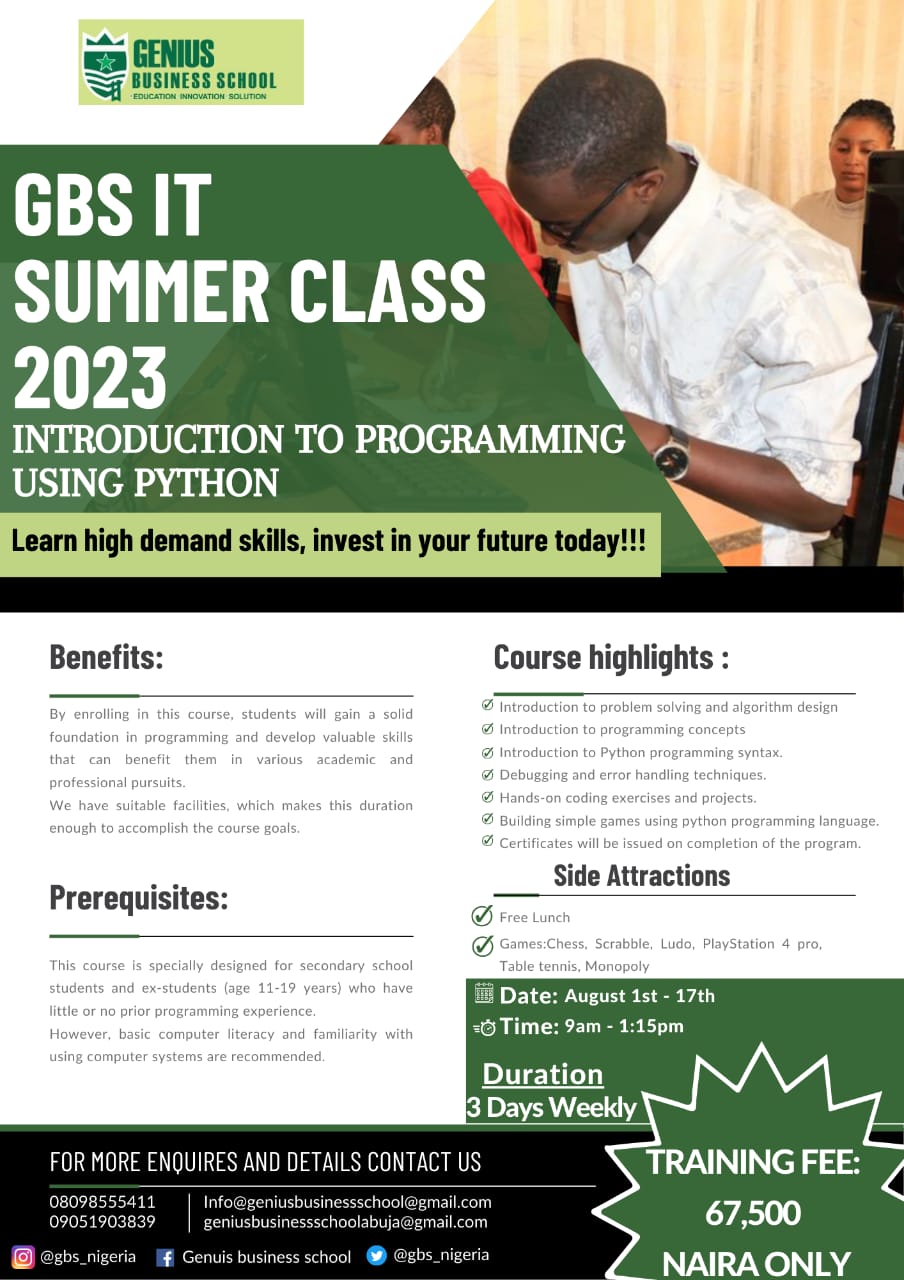Description
Course: Introduction To Programming Using Python Programming Language
Overview
The introduction to programming using Python Programming Language is designed to introduce young people to the fundamentals of programming using the Python programming language. No prior programming experience is required. However, basic computer literacy and familiarity with using computer systems are recommended.
During the course, trainees will learn the basics of Python programming language syntax, data types, variable, loops, conditionals, functions and more. They will also be introduced to fundamental programming concepts such as problem-solving, algorithm design and debugging.
The course curriculum is designed to be interactive and engaging. With focus on hands-on coding exercises and projects. Trainees will have the opportunity to apply their knowledge and skills by working on real life projects such as simple games and building interactive stories.
By the end of the course, trainees will have a solid foundation in Python programming language and will be able to write their own Python programs. They will also develop critical thinking, problem-solving and computational thinking skills that are valuable in various careers.
Course content
Week 1
- Introduction to the course and programming concepts.
- Installing Python and setting up the development environment.
- Printing and using the interactive Python shell.
- Variable and data types.
- Basic arithmetic operation and using variables.
- Understanding conditional statements (If, Else, ElIf)
- Introduction to Boolean values and expressions.
- Using comparison and logic operators.
Week 2
- Introducing loops (while and for loops).
- Writing programs to repeat actions using loops.
- Loop control statements (break, continue).
- Building simple programs with loops (e.g. number guessing game).
- Understanding functions and their importance in programming.
- Writing custom functions and using built-in-functions.
- Parameters and return values in functions.
- Organizing code with modular programming.
Week 3
- Introducing lists and arrays.
- Accessing elements in a list, list slicing and modifying lists.
- Using loops with lists (for each element).
- Basic data analysis with lists (sum, average, max, min).
- Understanding libraries and their role in Python programming.
- Exploring commonly used libraries for kids (e.g. Turtle, random).
- Creating simple shapes using Turtle module.
- Generating random elements in games and activities.
- Draw different shapes using Turtle library.
Target audience
This course is suitable for secondary school students and ex-students (age 11-19 years) who have little or no prior programming experience.
Learning outcomes
On completion of this course participants will:
- Understand fundamental programming concepts (such as variables, conditional statements, loops and functions).
- Understand basic Python syntax.
- Have good problem solving skills (they’ll be able to break down problems into smaller manageable parts).
- Understand how to draw simple shapes using Python.
- Understand modularity and how to organize their codes.
- Have developed basic debugging skills.
- Understand basic data structures like list and list manipulation.
- Understand how to perform basic mathematical operations using Python.
- Know how to read and understand basic Python codes written by someone else.
- Understand how to use simple libraries in Python
Duration
The course is designed to be completed in three (3) weeks. The trainees will come for training on Tuesdays, Wednesdays and Thursdays. They will have lectures for three (3) hours, meal breaks for forty-five (45) mins and game breaks for thirty (30) minutes.






Reviews
There are no reviews yet.